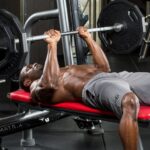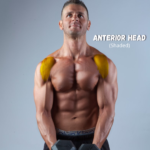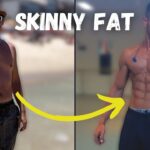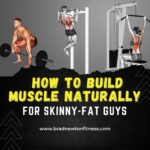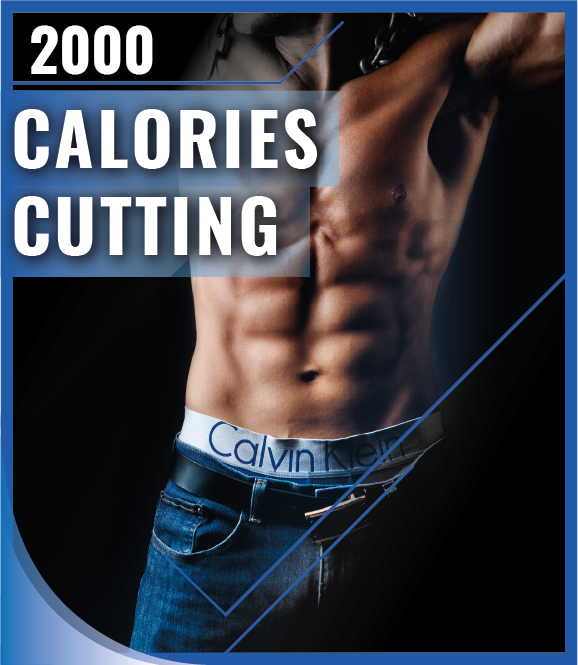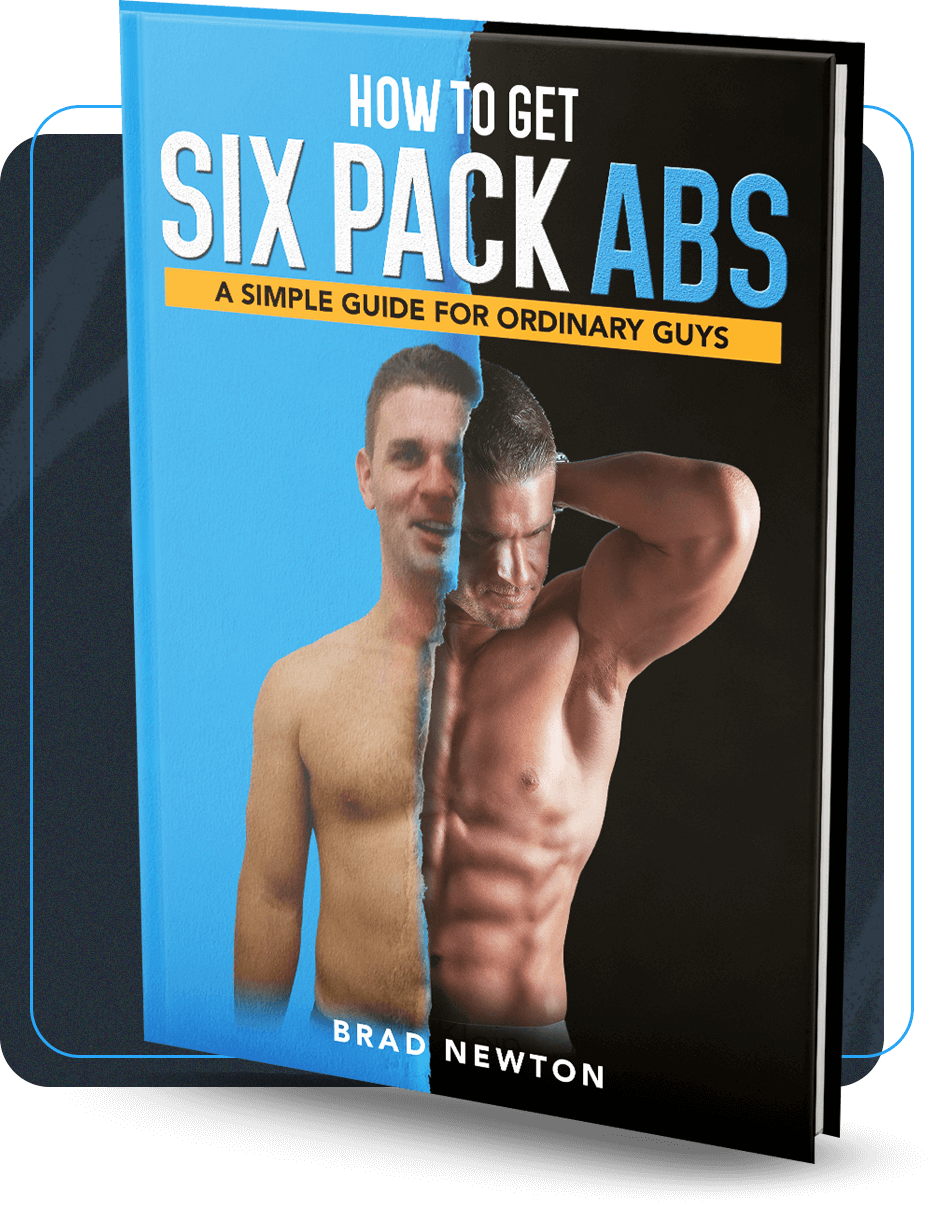In this article, I’m going to cut through the confusion that I went through as an ordinary guy trying to figure out the best beginner workout routine.
Over the years, I’ve tried many different types of training programs from bodybuilding magazines and other “gurus” — only to look the same and feeling more disheartened.
As I’ve since learned as an ordinary guy with ordinary genetics — which had gone on to compete in the World Titles as a natural fitness model competitor — there are only a few fundamentals to building an effective beginner workout routine.
By the end of the article, you’ll learn the 20% of the beginner workout routine principles that will give you 80% of the results I’ve achieved in my short fitness journey. The principles will be applicable for most goals and fitness ambitions.
The Best Beginner Workout Routine
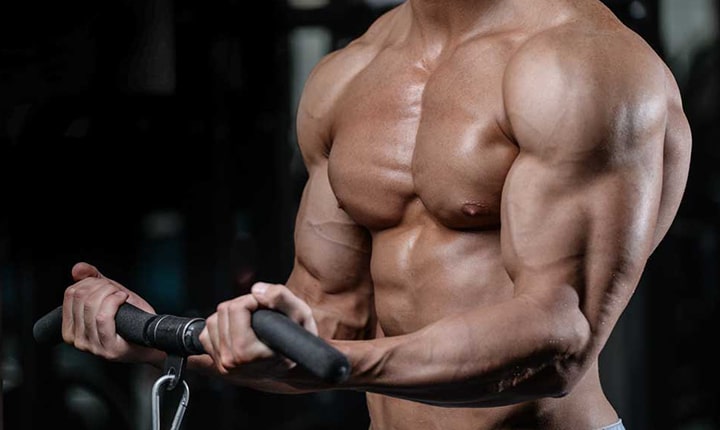
When I first started my gym training journey, I’d spend hours doing weight training and cardio — believing that “doing my time” was one of the essential ingredients to getting into shape.
Well, doing my time (in the gym) was important. I also wasted so much time doing exercises that in hindsight, did nothing to help transform my skinny-fat physique.
After doing a ton of reading and finally getting into the best shape of my life, I boiled down the success of my transformation to a few core principles relating to my workout routine;
- Keep your weight lifting sessions to 45–90 minutes.
- Do “warm-up” sets before the weight lifting sets (only one warm-up is required per muscle group)
- Weight lifting 3–5 times per week
- Ensure 1–2 rest days per week from weight training
- No more than 3–4 cardio sessions per week!
- Use my push-pull-legs program to structure your weight training.
- Give each muscle group 24–48 hours rest
- Get 2–3 minutes rest between sets
- 9–12 total sets per workout per muscle group
- 6–8 reps per set (then change it later!)
- Be consistent for 6–8 weeks before changing the beginner workout routine.
- Track progress using smartphone app (I use FitNotes)
- For cutting: add 3–4 HIIT sessions per week (either on “no weight training” days or after weight training session) — 15–20 minute HIIT sessions.
- For bulking: add 1–2 HIIT sessions per week (never do them before weight training. Always after)
Let’s take a look at some of my favourite work-out routines that I still use to this very day to maintain the results I achieved.
My 3-Day Beginner Workout Routine
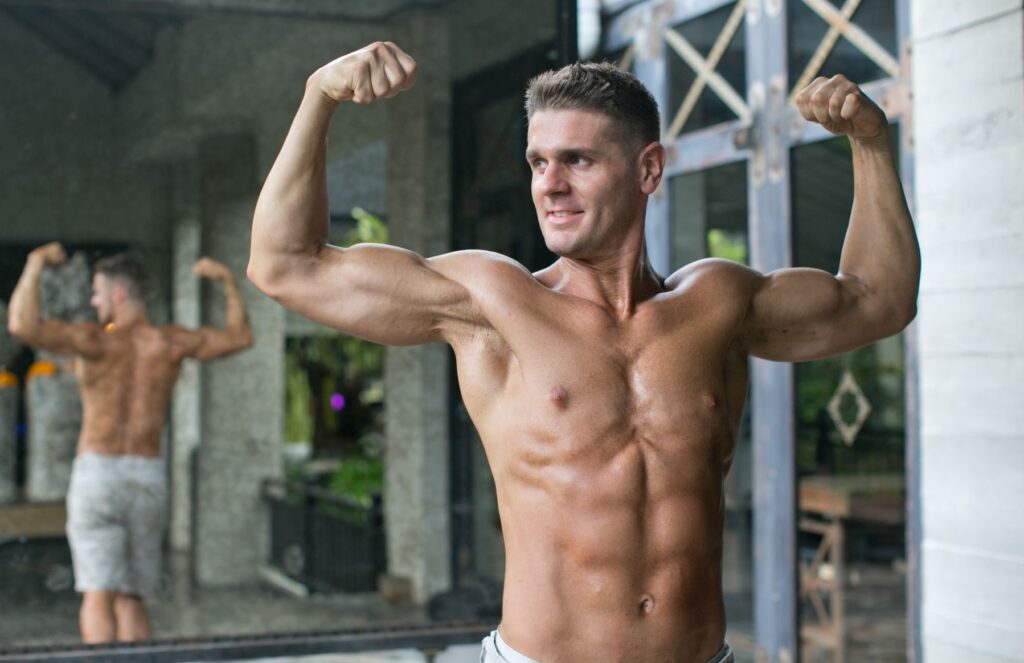
The push-pull-legs routine is one of the most popular strength training protocols for absolute beginners. It divides your muscle groups into push, pull, and leg days. It’s that straightforward.
If you only have 3 days of the week to dedicate to weight training, then I would start by following the 3-day push-pull-legs protocol.
Day 1 — “Push”
On Monday, I would train my chest, triceps, and shoulders (“chest and tris”)
Day 2 — “Pull”
On Wednesday, I would train back and biceps (“back and bis”)
Day 3 — Legs!
On Friday, I would just hammer my legs! Usually always starting with Barbell Squats or Leg Press.
Now that you know my basic structure for a 3-day push-pull-legs routine that I’ve been using for years! I will now share some incredible exercises that you can plug into your beginner workout routine.
My Favourite Beginner Workout Routine
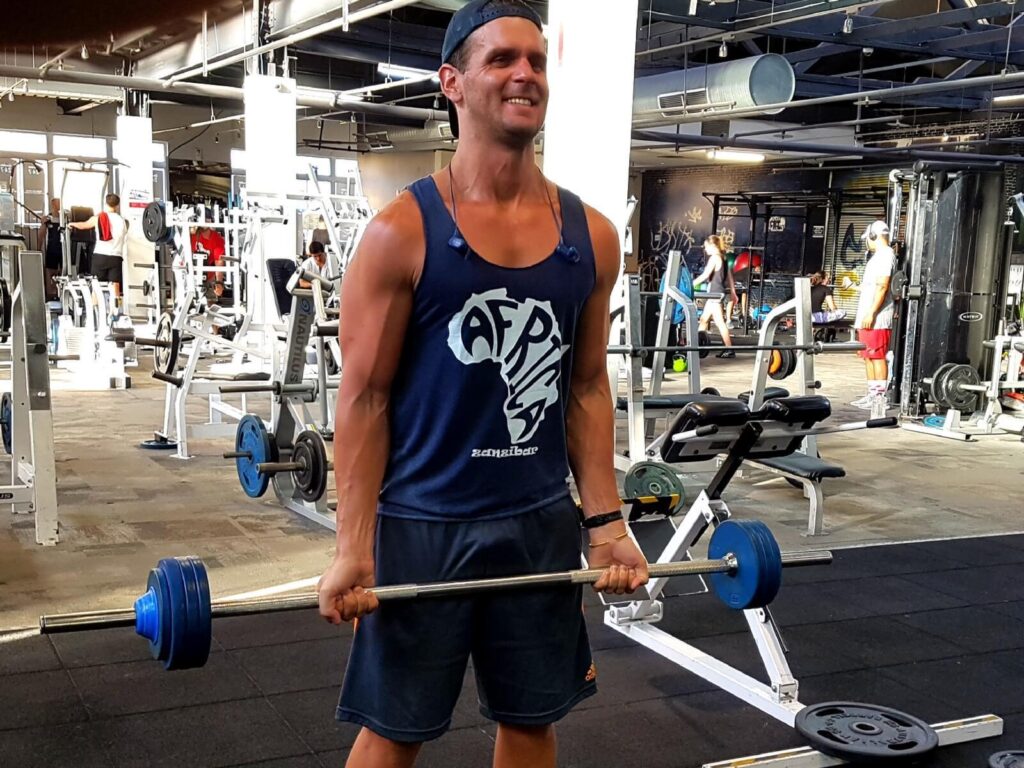
To keep it basic, weight lifting exercises are grouped into two major groups: compound exercises and isolation exercises. And they both have their place in a well-designed weight lifting program.
Like most guys starting their fitness journey, I made the mistake of emphasizing isolation exercises over compound exercises. This resulted in little to no gains and a lot of frustration.
The moment I started to emphasise compound exercises or exercises that use multiple muscle groups simultaneously (i.e., dead lift, squats, overhead press, kettle bell lunges) was the moment I noticed my body begin to change.
Years ago, I wasn’t confident doing dead lifting, squats, or anything which involved a dumbbell or barbell. I kept within the “safety” of machine-based workouts such as the ab crunch, cable fly, upright chest press.
The truth is, this was one of the biggest reasons why I saw little to no growth and was frustrated with myself. It was this moment I felt like I didn’t have the “genetic gift” for a great body.
Of course, there is nothing wrong with isolation exercises as they should be programmed to help develop smaller, stubborn muscles which assist with the growth of larger muscles.
I’m about to give you a list of compound exercises that you should incorporate into your weight lifting routine. They have helped me tremendously over the years and wish I’d knew of them much sooner in my journey!
I’ll break these exercises into muscle groups to help you plan your weekly workout routine.
The Best Chest Exercises
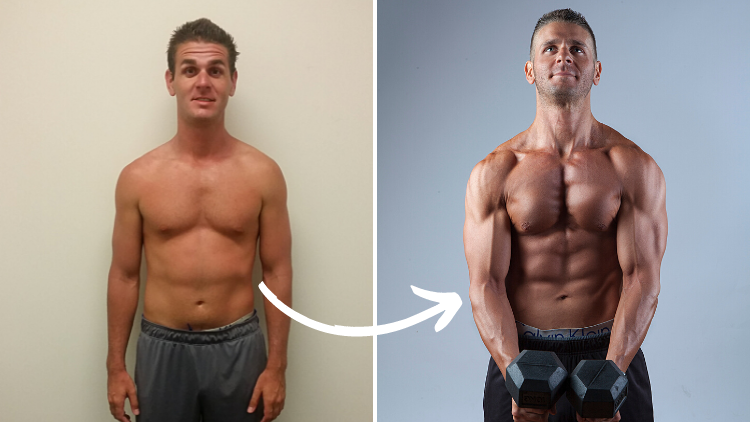
My chest completely transformed when I stopped doing Chest Fly, endless push-ups, and any other machine-based chest exercises, etc.
If you want to build a great chest — and I’m speaking to guys specifically — then you must learn how to Bench heavy and consistently.
When I first had this realisation, I decided to hire a personal trainer to show me how to correctly bench press — both flat and inclined — with dumbbell and barbell variations. Over time, I became better and better at bench press and often alternate between flat and inclined.
Take the time to learn them. I can assure you — you won’t regret it and you’ll thank me later 🙂
The Best Back Exercises
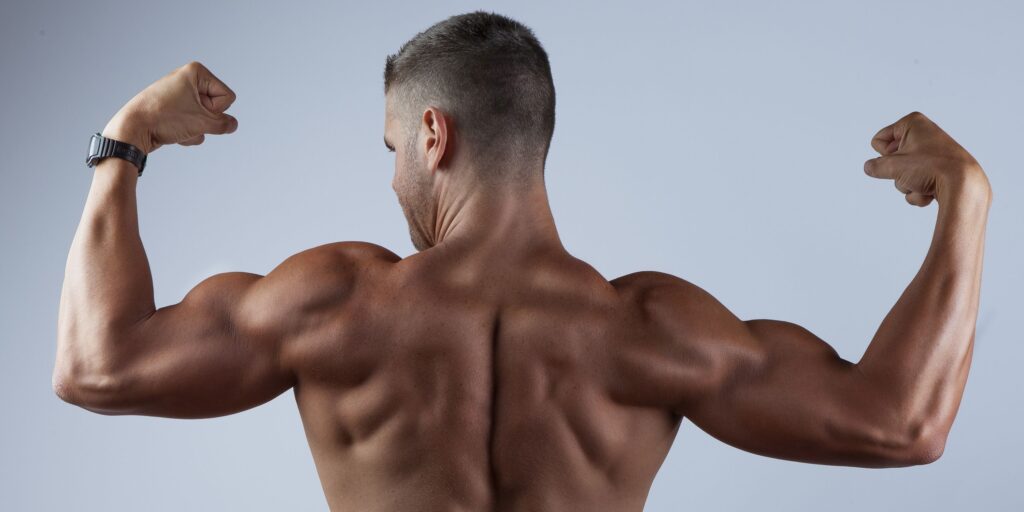
The deadlift is at the top of the list because it is the most effective back exercise you can do — trumping all other exercises on the list!
Before I started deadlifting, I was scared of doing them because I didn’t want to “injure my back” — a fear that was instilled into me by gym folk.
The truth is, all exercises can hurt your back if you use bad form and execution. The biggest mistake that people make on the deadlift is they pull with a bent lower back! At low weight with any exercise, you can get away with poor form. When you add more and more weight, the added load puts uneven pressure on your discs — leading to disc bulge and other back injuries.
It was the reason why I hired a personal trainer and asked that he could teach me the fundamentals to deadlifting. I’ve been doing them ever since 😉
The Best Leg Exercises
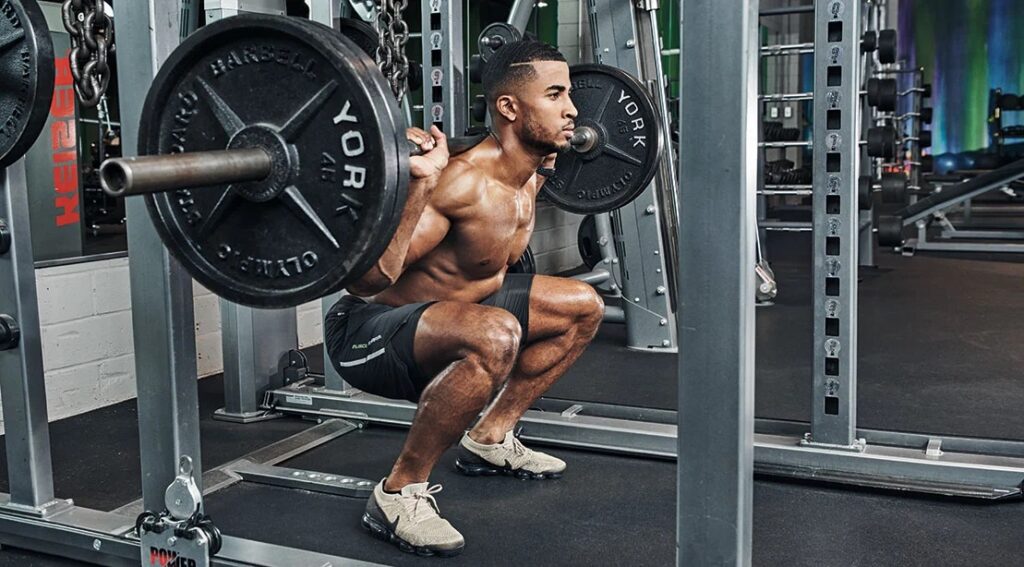
The barbell squat — front or back — will absolutely blow your legs out of the water 🙂 Again, years ago, I had a personal trainer show me how to execute these correctly and I’ve always actively included them in my “leg days”
Check out this demonstration video by Buff Dudes where they give a 2-minute demonstration on correct Barbell Back Squat execution, and common errors to avoid.
To summarise, definitely make an effort to undertake the barbell squat into your leg day routine and you’ll blast your legs like never before 🙂
The Best Bicep Exercises
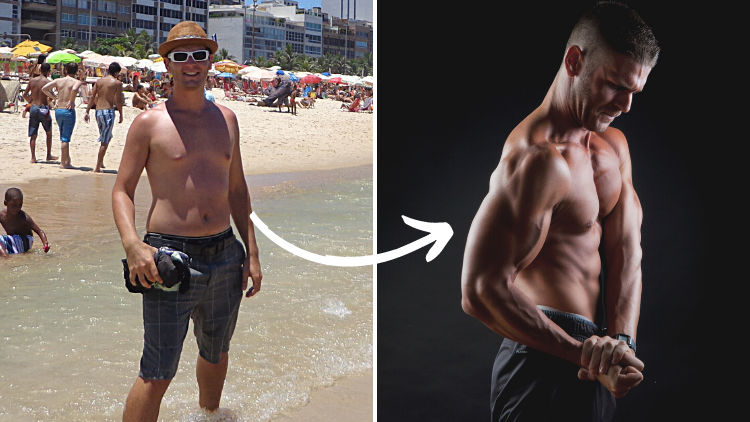
It’s basically just a bunch of curls! There should be absolutely no confusion which bicep exercises you should be doing — as there are really not that many to pick from.
As you can see in the photo above, I started off with skinny arms but managed to grow them by using only dumbbell and barbell curls, with occasional hammer curls.
I also put equal importance on incorporating tricep exercises as this is what ultimately gives “size” to your arms. I’ll discuss my favourite tricep exercises in the next section.
The Best Tricep Exercises
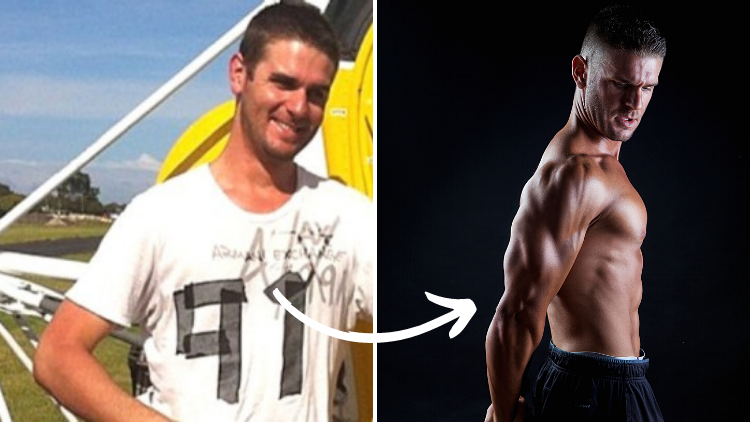
I managed to grow my triceps by incorporating these exercises into my beginner workout routine. And for the guys out there — the size of your arms comes down to how developed your triceps are (not biceps!). Neglecting your triceps is a grave oversight!
As with any other exercise, I suggest that you start off with light weight. Ensure that your technique is 95% correct before you begin adding more weight. For example, the standing overhead dumbbell tricep extension should be executed with a very light dumbbell — before going heavier! The close-grip bench press should be practiced with an empty barbell — before adding any weight.
The Best Ab Exercises
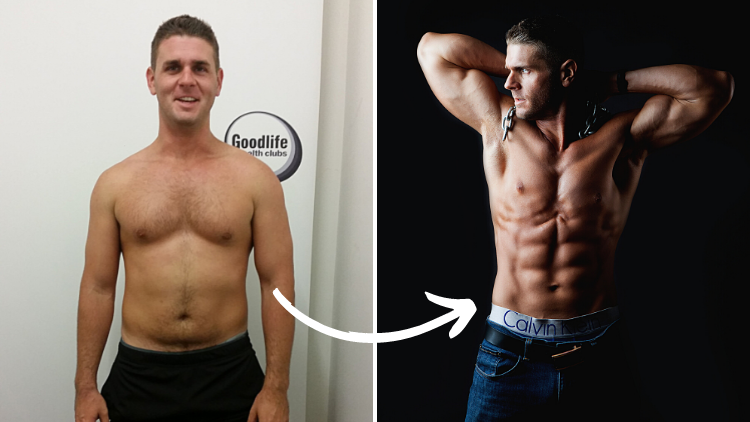
I struggled for years to get the “elusive” six pack. I tried a multitude of programs, endless ab crunch — even the exercises I’ve listed — with no luck!
So how did I finally get them?
Firstly, I learned that my body fat percentage was too high! If you are carrying too much body fat, you won’t be able to see any muscle change on your body — even if you are doing the correct exercises!
You must get your body fat percentage down! For guys, your six pack will start to show at around 10–12%. For gals, those “lines” will start showing at around 20% and below. If you need help, read this article where I explain the calorie and macronutrient targets that I followed to get shredded.
In terms of exercises to develop your abs, there are so many variations that it all seems confusing! The truth is, there are only a few exercises that I’ve done in recent years to get the abs you see in the after photo (above). Most of my transformation was done with calorie and macronutrient control (read that article I wrote!)
My favourite exercise is the ab wheel roll-out. I purchased an ab wheel off Amazon and have had it for several years now. I highly recommend this exercise as it blasts your entire core, including your abs.
Another one I like is the hanging leg raise! I usually alternate between a “knee raise” and raising a straight leg. Start with a hanging knee raise and then progress to a hanging straight-leg raise. Don’t swing!

Start Your Transformation Today!
Reach your fitness transformation goals of shredding fat, building muscle, and getting stronger, in the shortest time, without crazy dieting or buying useless sports supplements.
Learn MoreThe Best Shoulder Exercises
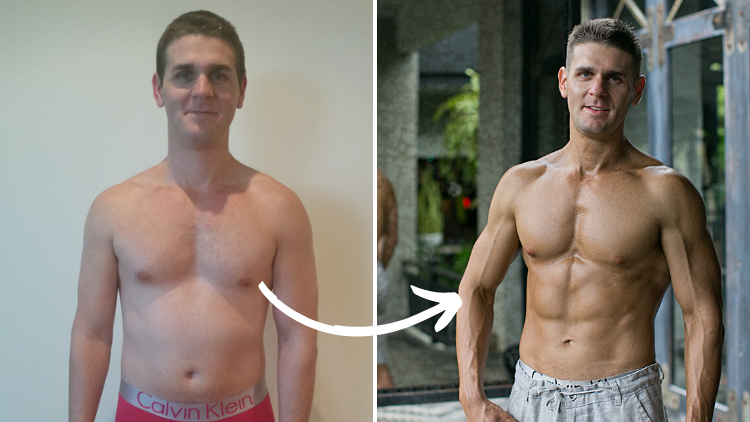
A shoulder weight lifting routine is not complete unless the exercises you choose target all three heads of your shoulders.
Whenever I start my shoulder session, I usually almost always start with the military press (or overhead press), or the Arnold dumbbell press. Afterwards, I will incorporate exercises that target the middle and rear head of the shoulder — such as front raises, face pulls, or lateral side raises.
Again, there aren’t many exercises for training shoulders. Just keep in mind that you need to emphasise heavy military or overhead pressing 🙂
Beginner Workout Routine
Best Sets & Rep Ranges
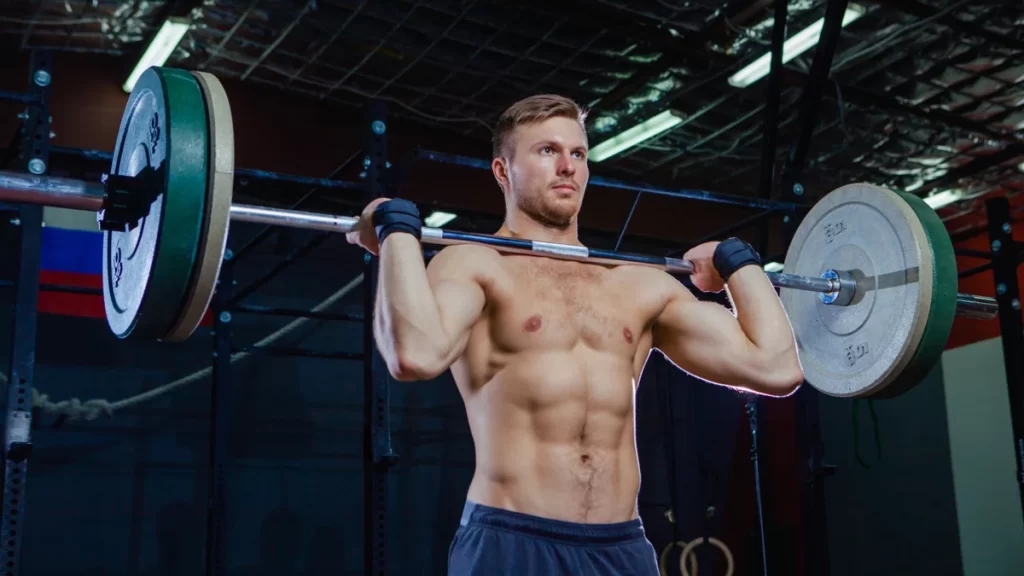
In the early stages of my transformation, ideal rep ranges was one of the most confusing concepts in my fitness journey! I struggled with trying to find the “best” rep range to get the transformation I wanted.
I’ll expand on this later, as it deserves its own article.
For now, the strength-endurance continuum is a common reference point by scientists where a low rep range (2–6 reps) emphasises strength— moderate rep ranges (7–12 reps) emphasise hypertrophy, and higher rep ranges fall into endurance territory.
In other words, power-lifters focus on getting stronger (below 6 reps) whereas marathon runners are concerned with endurance (above 12 reps). Therefore, common gym lore lends itself to “muscle building” or hypertrophy being somewhere in the middle — around the 8–12 rep range.
The truth is a bit more complicated than simply operating in a single rep range for a given goal. But…
For most guys reading this, you are probably at the beginning of your journey and have little to no weight lifting experience! If so, you’ll reap benefits by sticking to a rep range that I stuck to for the first 6–8 months of my journey, before I started to periodize my training.
Modifying rep ranges is something you’ll need to do as you get more experienced. Periodized training is a topic for another article.
Example: “Push Day” (Chest and Triceps)
Chest
Inclined Barbell Bench Press: 4 sets at 6–8 reps
Flat Dumbbell Bench Press: 4 sets at 6–8 reps
Dips (chest variation): 2–3 sets 6–8 reps
Total chest sets per workout: 9–12 sets
Triceps
Tricep Push-Down: 4 sets at 6–8 reps
Close-Grip Bench Press: 4 sets at 6–8 reps
Dips (tricep variation): 4 sets at 6–8 reps
Total tricep sets per workout: 9–12 sets
In summary, I aimed to achieve 9–12 sets per muscle group per session, twice per week! Achieving a total training volume of around 20–25 sets per muscle group per week! If you are a natural weight lifter, this is plenty! Steroid users have training volumes much greater than us natty’s 🙂
How Much Rest Between Sets (Building Muscle)?
Before I knew better, I believed that I had to work up a sweat to be making any kind of progress.
The truth was — I was sweating in most workouts and not making any progress toward building muscle! If your goal is to shed fat and get leaner, you’ll most likely emphasise cardio or HIIT and sweating becomes a byproduct of this process.
The idea of incorporating rest periods for the primary goal of building muscle is to allow sufficient recovery time for your muscles to lift heavy in the next set. By doing this, you are allowing the process of overloading the muscle to continue through the process of progressive overload.
In this study, researcher’s found that subjects that gained more muscle when training to failure, incorporate 2.5-minute rest periods as opposed to 1-minute periods.
In another study, the researcher’s found that large squat strength gains occurred with a minimum of 2 minutes rest between sets.
These rest times are only applicable if you are lifting heavy weights! For me, I’ll rest between 2–3 minutes between sets if I’m lifting heavy. Also, during my weight lifting sessions, I barely sweat! Sweating is not an indicator to a successful weight lifting (muscle building) session.
So… make sure you incorporate rest between sets 🙂
The Best Warm-Up Routine for Strength Training
This is definitely a separate article but very briefly, a proper warm-up always involves the muscles you’ll be using in the workout.
That seems obvious.
However, the mistake I made in my earlier weight lifting days was doing a bunch of cardio before jumping into bench press or dead lifting! This was definitely a stupid idea when I look back on it.
It’s important to do deadlifts to warm-up for deadlifting, do lunges to warm-up for weighted lunges, do bench press to warm-up for bench pressing, etc.
You’ll greatly reduce your risk of injury and get a more effective workout for the intended muscle group by first incorporating warm-ups before your working sets.
I’ll share with you my warm-up routine that is simple and easy to implement.
Example: “Push Day” (Chest and Triceps)
Chest
Warm-up sets
10 reps with an empty bar (no added weight).
Rest 30 seconds.
10 reps with 50% of my working weight.
Rest 60 seconds.
Repeat.
Rest 60 seconds
4–6 reps at 70% of my working weight.
Rest 60 seconds.
1 rep at 90% of my working weight.
Rest 2–3 minutes.
And that’s it. You’re now ready to do your working sets.
You only need to do one warm-up set per muscle group! The warm-up exercises are the very first bunch of light-weight sets I do which prepare the muscle group I intend on working.
Summary of the Best Beginner Workout Routine
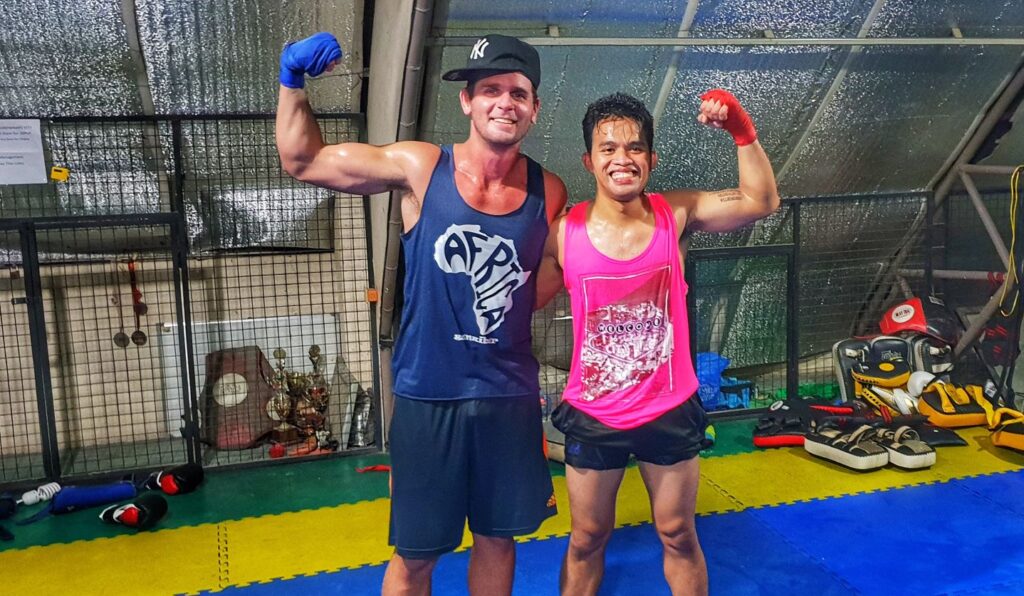
You are now miles ahead of where I was when I first started my fitness journey years ago. If you are not comfortable with doing the major compound movements I’ve mentioned — dead lifting, bench press, squat, and military press— then hire a personal trainer to help you establish the fundamentals.
I need to emphasise that for a beginner workout routine to be effective, it needs to be backed by a calorie target and macronutrient profile that is aligned to the program.
If you’d like to learn more about how you can eat enjoyable meals and get shredded on a beginner workout routine, check this out. The meal planning strategies I used to get into the best shape of my life are outlined there.
For the purposes of building muscle as a newbie weight lifter, the following “cheat sheet” will save you so much time in the gym;
- Keep your weight lifting sessions to 45–90 minutes.
- Do “warm-up” sets before the weight lifting sets (only one warm-up is required per muscle group)
- Weight lifting 3–5 times per week
- Ensure 1–2 rest days per week from weight training
- No more than 3–4 cardio sessions per week!
- Use my push-pull-legs program to structure your weight training.
- Give each muscle group 24–48 hours rest
- Get 2–3 minutes rest between sets
- 9–12 total sets per workout per muscle group
- 6–8 reps per set (then change it later!)
- Be consistent for 6–8 weeks before changing the beginner workout routine.
- Track progress using smartphone app (I use FitNotes)
- For cutting: add 3–4 HIIT sessions per week (either on “no weight training” days of after weight training session) — 15–20 minute HIIT sessions.
- For bulking: add 1–2 HIIT sessions per week (never do them before weight training. Always after)
Make sure you remember to record every set that you perform in a smartphone app like FitNotes. This is really important.
Every week, your aim is to try and beat your previous weight by a little bit. The aim is to add a little bit of weight to the bar every time you do the exercise — and record it somewhere!
At the 6 week mark, let me know how it is going for you! And definitely share your transformation journey 🙂


